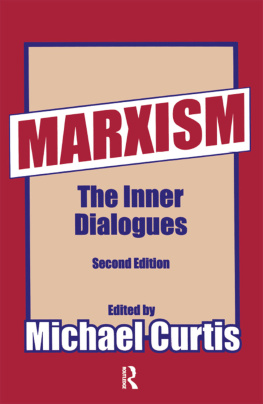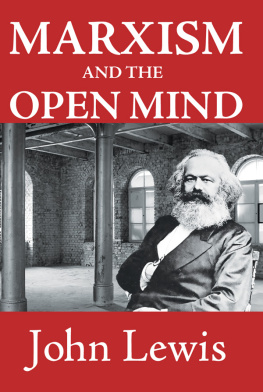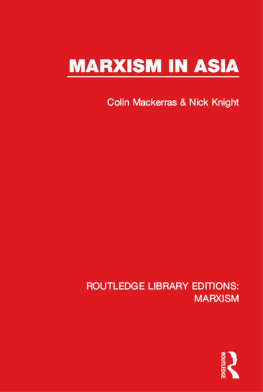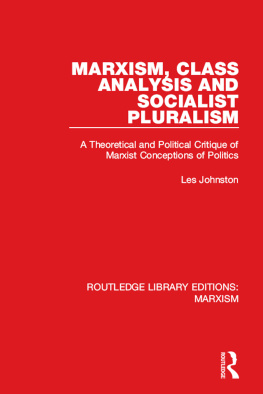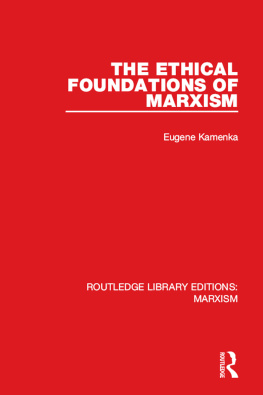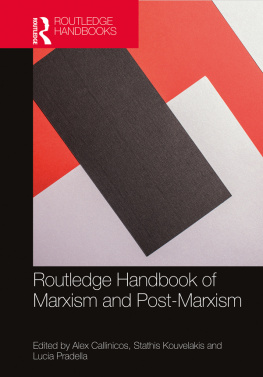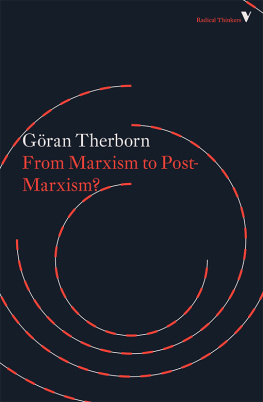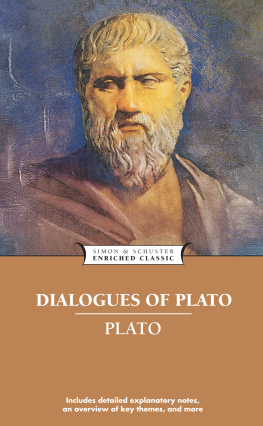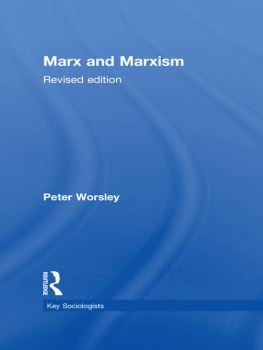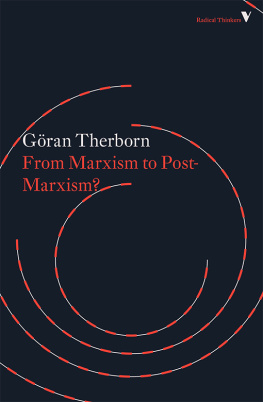MARXISM
MARXISM
The Inner Dialogues
Second Edition
Edited by
Michael Curtis
Originally published in 1970 by Atherton Press, Inc.
Published 1997 by Transaction Publishers
Published 2019 by Routledge
2 Park Square, Milton Park, Abingdon, Oxon OX14 4RN
52 Vanderbilt Avenue, New York, NY 10017
Routledge is an imprint of the Taylor & Francis Group, an informa business
New material this edition copyright 1997 Taylor & Francis
All rights reserved. No part of this book may be reprinted or reproduced or utilised in any form or by any electronic, mechanical, or other means, now known or hereafter invented, including photocopying and recording, or in any information storage or retrieval system, without permission in writing from the publishers.
Notice:
Product or corporate names may be trademarks or registered trademarks, and are used only for identification and explanation without intent to infringe.
Library of Congress Catalog Number: 96-52289
Library of Congress Cataloging-in-Publication Data
Marxism : the inner dialogues / edited by Michael Curtis2nd ed.
p.cm.
Includes bibliographical references and index.
ISBN 1560009454 (alk. paper)
1. Marx, Karl, 18181883.2. Socialism.I. Curtis, Michael, 1923
HX39.5.C861997
ISBN 13: 978-1-56000-945-0 (pbk)
ISBN 13: 978-1-138-52769-0 (hbk)
To Joseph Machlis,
matchless musicologist
Contents
PART ONE
POLITICAL THEORY, SOCIAL SCIENCE, OR IDEOLOGY?
. GEORGE LICHTHEIM
. LEWIS COSER AND IRVING HOWE
. DONALD CLARK HODGES
. CHARLES F. ELLIOTT
. RICHARD LOWENTHAL
. GEORGE LICHTHEIM
. DONALD CLARK HODGES
. T. B. BOTTOMORE
PART TWO
MARX: MORALIST AND HUMANIST
. R. N. CAREW HUNT
. EUGENE KAMENKA
. DANIEL BELL
. MICHAEL HARRINGTON
. N. LOBKOWICZ
. ALASDAIR MACINTYRE
PART THREE
CLASSIC MARXIST THEMES: PHILOSOPHY, HISTORY, AND ECONOMICS
. MAX EASTMAN
. HERMAN SIMPSON
. H. B. MAYO
. J. H. HEXTER
. OSCAR LANGE
. WASSILY LEONTIEF
. PAUL A. SAMUELSON
PART FOUR
CLASS CONFLICT, REVOLUTION, AND POLITICAL POWER
. S. OSSOWSKI
. RALF DAHRENDORF
. HAROLD ROSENBERG
. S. M. LIPSET
. ROBERT TUCKER
. HAL DRAPER
. ROBERT TUCKER
. CALVIN B. HOOVER
. GEORGE A. BRINKLEY
. MICHAEL CURTIS
T HIS second edition of Marxism seeks to introduce students of political thought and comparative politics to some of the major contemporary controversies and continuing discussions of the meaning and significance of an important and influential ideology of our time. Since the concept of the Asiatic mode of production has aroused both interest and passion in recent years, a new essay on that subject has been added to the original work.
When the first edition appeared, it could be argued that the study and evaluation of Marxism was logically inseparable from the analysis of politics in the Soviet Union, China, and other Communist countries, and could help understand the debates, sometimes heated, in Communist parties and movements elsewhere. Even then the book concentrated on problems and issues in Marxist studies rather than on political practice and behavior. Now that most of the Communist political systems in the world, with the important exception of China, have been dissolved and Marxism is no longer the ideological base of society and politics in the former Communist countries, it is even more appropriate that Marxism be critically assessed in an objective and dispassionate way.
The articles in the book are both expository and critical in nature. I wish to thank the various authors and publishers for allowing me to use the excerpts included in this volume. I have on a number of occasions removed footnotes, which in no way has detracted from the scholarly nature of the contributions.
I am grateful to the Moshe Dayan Center at Tel-Aviv University for providing financial and logistical assistance allowing me to write the last chapter.
Michael Curtis
December 1996
M ARXISM is the most intellectually ambitious, systematic, and influential political philosophy in the contemporary world. It not only has affected much of modern culture but has also provided the conceptual framework for powerful political movements and the theoretical basis for the regimes of a substantial number of nations. Marxism comprises a methodological approach to the perception and understanding of phenomena, a scientific study of society, a philosophy of history, a history of economic behavior (especially that of the capitalist system), and a conception of political power.
Philosophically, Marxism is a compound of Hegelianism, positivism, and materialism. Ethically, it is a descendant of the spirit of the Enlightenment. Politically, it derives its inheritance from the revolutionary movements of nineteenth-century France. Economically, it stems from the preoccupations of British political economy. But Marxism is not simply a majestic theoretical structure in which, as Isaiah Berlin has argued, the parts are made to appear from each other and to support each other in a single systematic whole.1 Marxism is also a call to action, a revolutionary cry to change economic and social conditions. The frontispiece of the Collected Works of Marx, the Gesamtausgabe, shows the cartoon of Marx as Prometheus, the representative of the oppressed. Marxists claim that theory and action are inextricably connected; for Lenin, the living soul of Marxism was its revolutionary content.
On one occasion, when confronted with an interpretation of his theory, Marx is reported to have said, In that case I am not a Marxist. Certainly, interpretations of Marxism are legion, and the true inheritance has been continually disputed. The problem of elucidating the meaning of Marxism stems from a number of factors. Marx and his closest colleague and alter ego, Engels, never wrote any coherently interrelated analysis of all their major ideas, and any synthesis has been provided by their disciples and epigoni. Not surprisingly in an author who wrote so widely during a long career, there is some change of perspective or difference of nuance in parts of the theories. Some of the confusion is due to the reception and selectivity of the Marxist ideas by later theorists or by parties and political movements claiming to be inspired by Marx, but using or emphasizing only those parts of the ideas to which they were attracted.
In addition, Marxism is an intellectual structure which continues to grow as each disciple or interpreter adds his own contribution to the original scaffolding and claims to be the exponent of the true faith. Each student must decide whether Marxists such as Lenin, Trotsky, Stalin, Kautsky, Plekhanov, Luxemburg, Gramsci, Bernstein, Lukacs, Tito, Castro, or Mao are to be included in the intellectual line of succession. Similarly, students must assess the degree to which Marxism is related to other forms of contemporary thought, such as psychoanalysis, existentialism, phenomenology, linguistics, or avant-garde culture.


